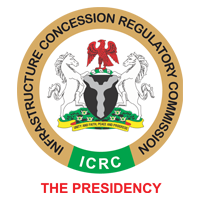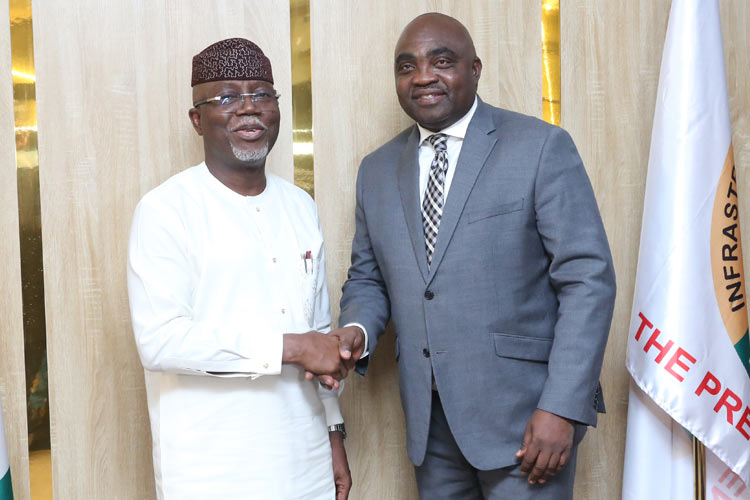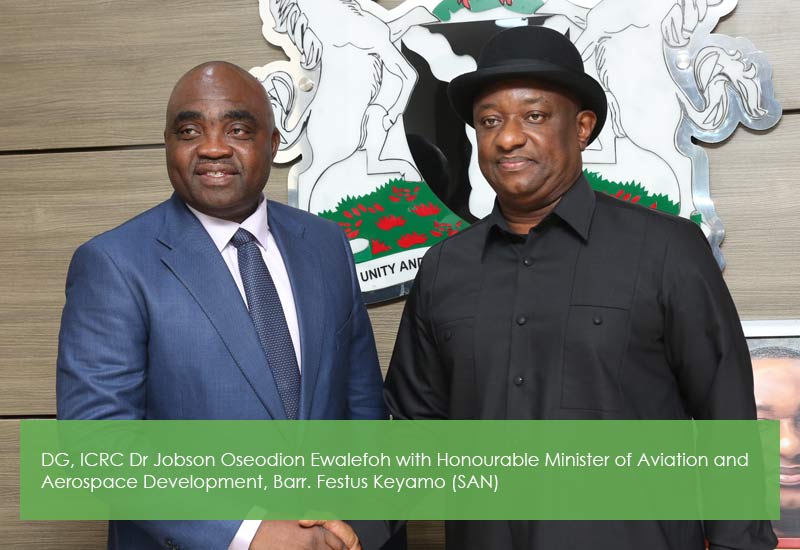STRENGTHENING INFRASTRUCTURE COMMISSION FOR IMPROVED PERFORMANCE
RAISING sufficient funds for developmental projects in meeting the needs of the people has become a source of worry to the global community. As Economists would say, human wants are many but the means to satisfy them are grossly limited.
Therefore, providing adequate social infrastructures such as, health, education, food, houses, good roads, better air or rail transport, creating employments and others for the people has become source of concern for several countries of the world occasioned by the continued shrinking of funds that has become inadequate to deliver these social services.
Although globalisation has its own advantages, pundits would readily agree that globalisation is more beneficial to advanced nations of the world compared to developing ones.
Revenue from oil, which has helped several nations of the world to promote rapid development; has unfortunately, become a burden for the same countries worsened by the recent sharp fall in prices of the commodity.
Several nations like Nigeria have suddenly resorted to providing the needed social infrastructures for the people through various Public Private Partnership (PPP) models.
A PPP is a contractual agreement between a public agency (federal, state or local) of government and a private sector entity. Through this agreement, the skills and assets of each sector (public and private) are shared in delivering a service or facility for the use of the general public. PPP have been used for delivery of services worldwide in sectors earlier mentioned above.
A typical example of a PPP in Nigeria is the contractual agreement between the Federal Airport Authority of Nigeria (FAAN) and Bi-Courtney Aviation Services for the Build Operate and Transfer (BOT), of the Murtala Mohammed Airport (MMA) 2 domestic airport terminal in Lagos.
Determined to implement and established effective Public Private Partnership model therefore, the Nigerian government in its wisdom established the Infrastructure Concession Regulatory Commission through the ICRC Act of 2005.
The Act bestows on the Commission with functions and powers to provide general policy guidelines, rules and regulations, take custody of every concession agreement, monitor and inspect PPP projects and to ensure effective execution of any concession agreement or contract entered into by the federal government.
The establishment of the ICRC in 2008 by the Nigerian government was primarily to harness the resources of the private sector as a way of augmenting the dwindling resources of government, which had hitherto, financed, developed and maintained virtually public infrastructure in the country.
The move was also in recognition of the negative effects of infrastructural inadequacy on economic growth and international competitiveness as well as the need to upscale the country’s infrastructure in partnership with the private sector for better prospects.
Yes, it was a move for the demonstration of understanding of the realities of the international financial environment. Little wonder that PPP projects that would attract investment must respond to the critical expectations of serious investors and long-term credit providers.
Such projects must also demonstrate clear financial viability and be manifestly bankable even as it is mandatory to ensure that sufficient data and information on such projects must be available to prospective investors and financiers to enable them evaluate the projects viability.
As noble as the aims and objective for setting up the ICRC might be, suffice to say that barely seven years of its establishment, the Commission has found itself in precarious situations standing on its way to performing its roles maximally.
As we speak, the Commission is facing acute shortage of funds to carry out its activities to the fullest. Presently, the Commission’s activities such as the assessment of the business cases presented by MDAs in support of PPP projects, development of regulatory guidelines to MDAs to ensure conformity with the PPP laws and policy uniformity in PPP arrangements is yet to be met.
Similarly, paucity of funds has made it difficult for the Commission to take custody of executed PPP contracts while ensuring compliance by the parties concerned even as the Commission is unable to undertake regular/periodic compliance visits to PPP projects sites.
It is evident that approved budget allocation for the Commission in the fiscal year 2014, was put at N909.26 million, comprising —N581.54 million for personnel cost, N280.72 million for overhead and N47million for capital but as at 31st December, 2014, the Commission only received N581.54 million or 100 per cent in respect to personnel, N183.49 million or 65.35 per cent for overheads and N19.52million or 41.53 per cent for capital, showing a difference of 124.71 million that was not released to the Commission after all.
Following above challenge, is the urgent need to reduce the risk perception of the potential private sector partners arising from the ever-evolving legal and regulatory environment in Nigeria.
In a nutshell, it has become expedient to accelerate efforts to enact the pending ICRC Amendment Bill together with other pending infrastructure sector bills, which are presently at the various stages in the legislative process.
Whereas the ICPC Amendment Bill seeks to strengthen the regulatory capacity of the Commission, the Infrastructure Sector bills strives to update laws and legislation that inhibit and threaten private sector participation in the provision of infrastructure in the country.
Also worrisome, is the simple fact that Public-Private Partnership arrangements are quite novel in Nigeria. Little wonder why they requires effective strategies of communication and promotion in a manner that would generate interest and attract reputable and committed private domestic and international investors to the country’s PPP market.
Political interference in the affairs of the Commission is not helping matters either. It is, therefore, obvious that the PPP market in Nigeria would like to see a stable pipeline of projects and limited political interference in the PPP programme.
This is because a stable and well-communicated pipeline would go a long way to encourage reputable investors to participate confidently in the process recognising the fact that a loss on one bid can be compensated by a win on upcoming projects.
It will also enable investors plan their investments in advance, as a formal integration of the NIIMP into the budgetary system will facilitate these efforts.
Notwithstanding above shortcomings, the ICRC has since its establishment, found itself working towards the development of small Dams located at various parts of the country through the PPP arrangements, new high- speed land railway lines construction across Nigeria through PPP is being championed vociferously.
Several federal roads such as the Shagamu-Benin-Asaba highways are equally receiving attention as potential PPP. The construction of the Second-Niger Bridge is not left out, while the Lagos-Ibadan Express way is a case in point where PPP is being proposed as the way out to resolving the current imbroglio with the contractors.
The Kirikiri Port Lighter Terminal 1&2, the Inland Ports concessions, the Ibom Deep Sea Port, the Narrow Gauge-railway concession, the Lekki Deep Sea Port, the Nigerian Prison Service being proposed as a Greenfield PPP project, among others, are at various stages of PPP development, procurement and implementation.
Lovers of rapid industrial revolution for Nigeria are of the opinion that if the Commission is to do better it behooves on the federal government to ensure that the above-mentioned challenges facing it are surmounted without further delay.
The ICRC Director-General, Aminu Diko summed it up thus: “The federal government established the Commission to harness the pool of private funding towards reducing the nation’s depressing infrastructure inadequacy, the intense competition for budgetary funding arising from dwindling government resources is also daunting.”
According to him: “Even though PPPs are not a panacea for our infrastructural shortcomings and although this policy thrust is novel in Nigeria, it is promising and also increasingly gaining attraction, there is no doubt that PPP arrangements provides an opportunity for the present administration to upscale the country’s infrastructure to world standards in meeting the requirement or a 21st century economy.”



